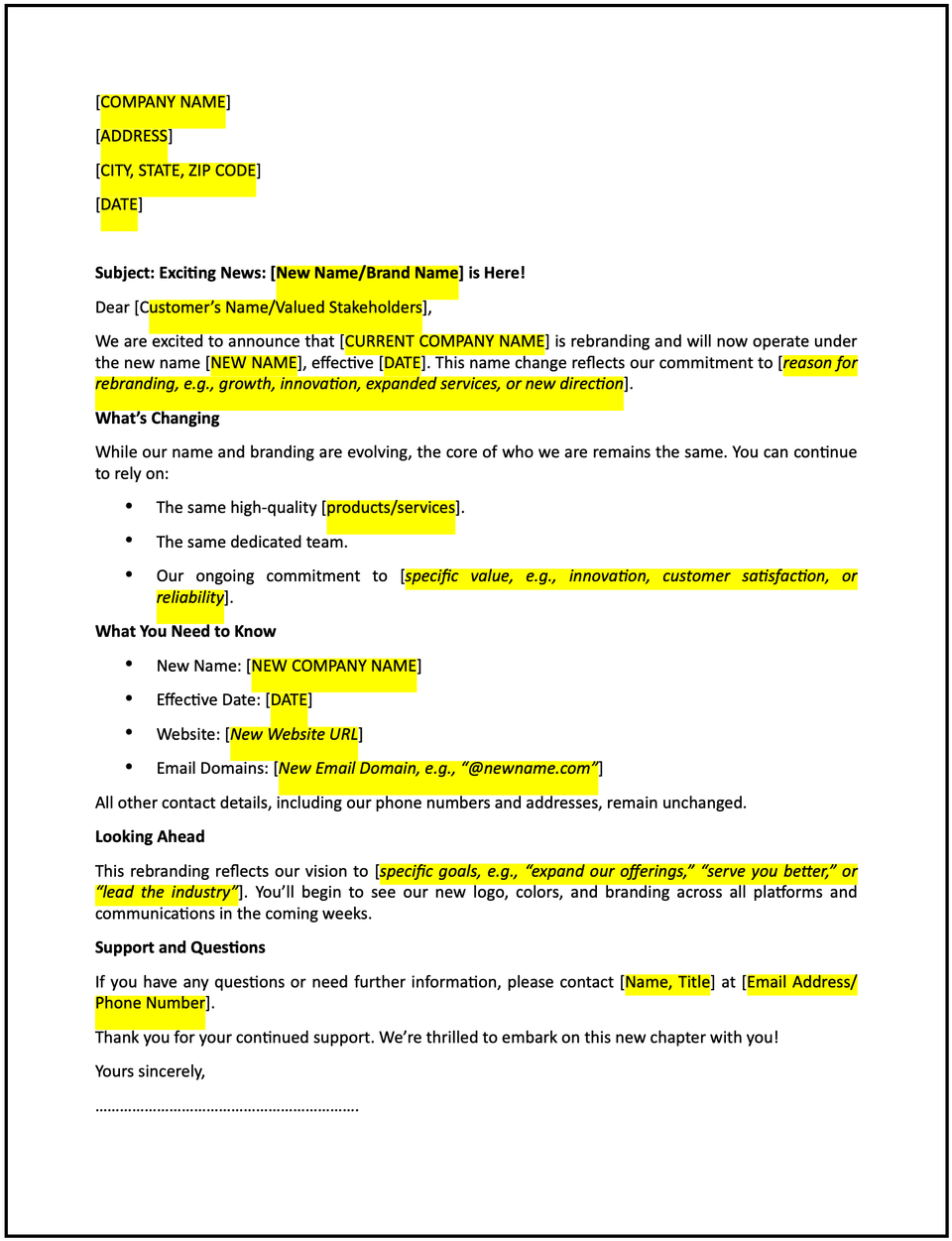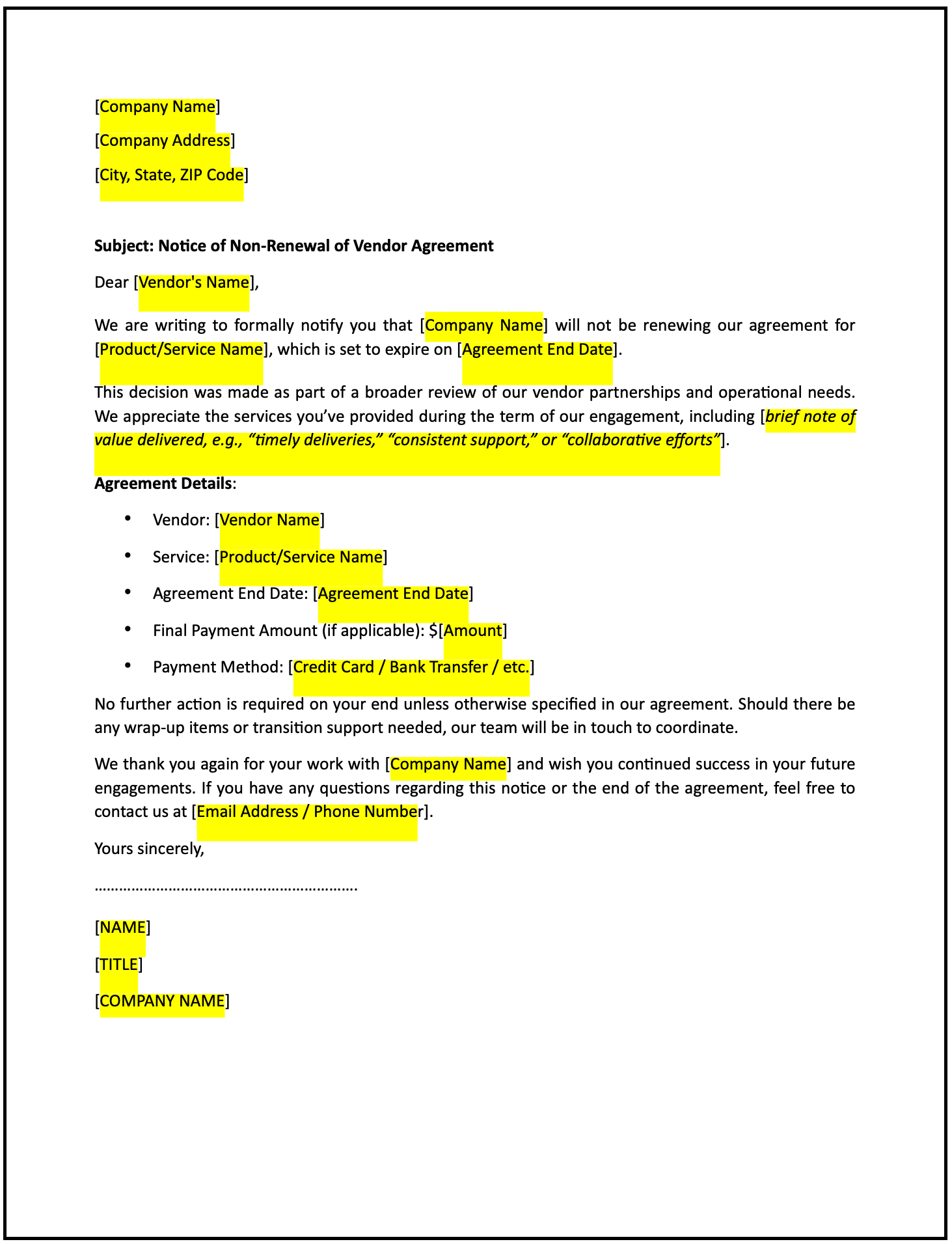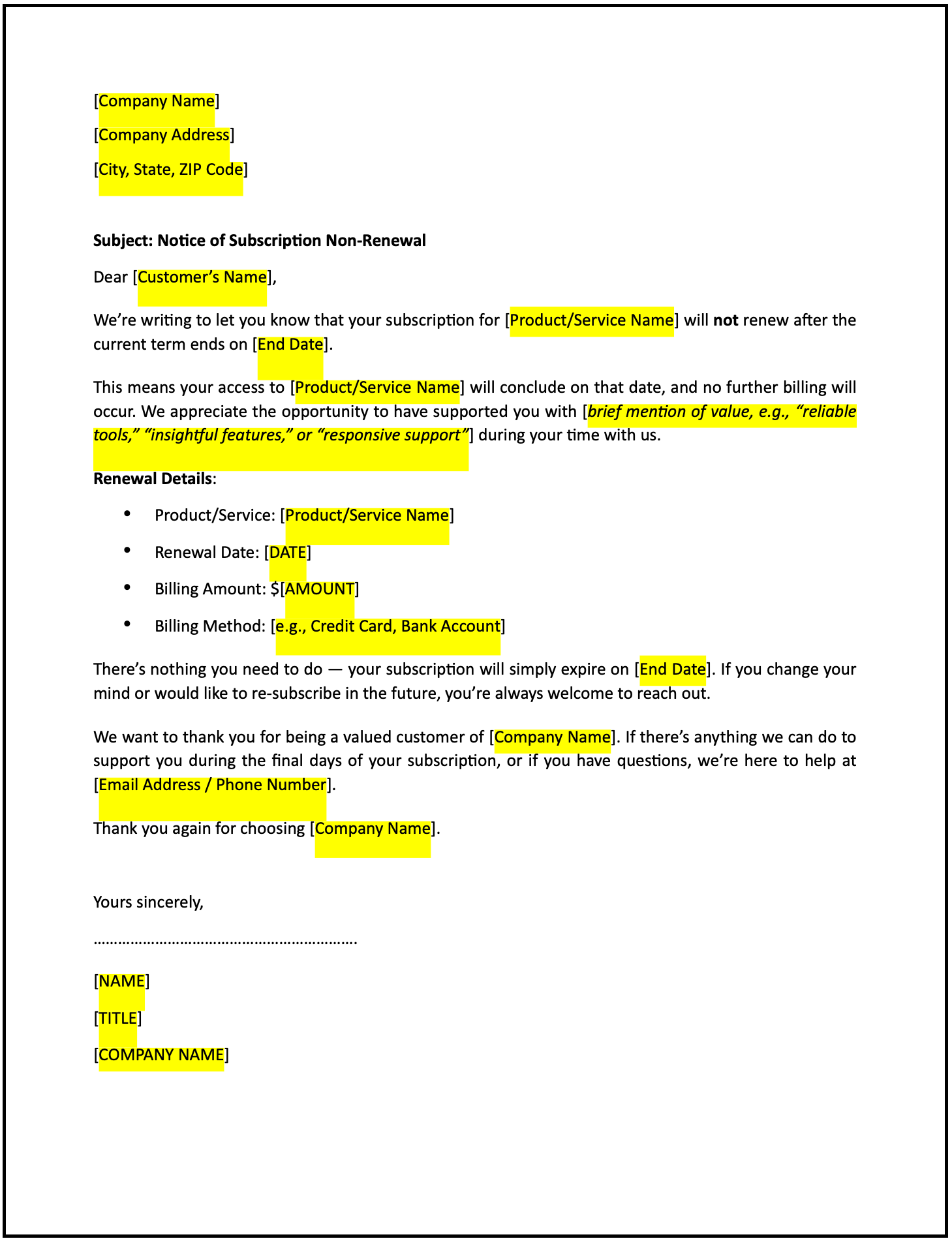Letter of rebranding or name change of the business: Free template

Letter of rebranding or name change of the business
A notification letter of rebranding or a business name change formally informs stakeholders, customers, and partners about the new identity of the business. This letter explains the reasons for the change, assures continuity of services, and fosters excitement about the rebranding.
How to use this letter of rebranding or name change of the business
- Open with the announcement: Begin by announcing the rebranding or name change and expressing enthusiasm about the new direction.
- Specify the change: Clearly state the new name, logo, branding elements, or any significant updates.
- Provide the reason: Briefly explain the rationale behind the rebranding, such as aligning with new goals, better reflecting values, or improving market presence.
- Assure continuity: Reassure recipients that the core mission, services, and values of the business remain unchanged.
- Highlight the benefits: Explain how the rebranding or name change enhances the business’s identity, customer experience, or value proposition.
- Provide next steps: Share details about how the change will be implemented, including timelines, updates to materials, or actions recipients may need to take.
- Maintain a professional and positive tone: Ensure the letter reflects confidence and excitement about the change.
- Provide contact information: Include details for recipients to reach out with questions or feedback about the rebranding.
Benefits of using a letter of rebranding or name change of the business
This letter template ensures a structured and professional way to communicate a rebranding or name change while fostering trust and engagement. Here’s how it helps:
- Promotes transparency: Clearly outlining the rebranding builds trust and reduces confusion.
- Encourages excitement: Announcing the change positively engages stakeholders and customers.
- Reflects professionalism: A thoughtful letter demonstrates respect for recipients and commitment to clarity.
- Strengthens relationships: Reassuring stakeholders of continuity fosters confidence and loyalty.
- Provides documentation: A formal record of the announcement supports internal and external communication.
Tips for writing an effective letter of rebranding or name change of the business
- Be specific: Clearly describe the new name, branding, and any changes recipients should expect.
- Use professional language: Maintain an enthusiastic and confident tone to inspire trust and excitement.
- Highlight reasoning: Briefly explain the rationale for the change to align recipients with the vision.
- Include actionable advice: Provide details on how recipients can stay informed or update their records if necessary.
- Keep it concise: Focus on the key points while ensuring the tone is professional and engaging.
Frequently asked questions (FAQs)
Q: What details should I include in this letter?
A: Include the new name or branding, rationale for the change, assurance of continuity, and next steps for stakeholders.
Q: Should I personalize the letter?
A: Personalizing for key stakeholders, such as partners or clients, adds a thoughtful and professional touch.
Q: Who typically sends this letter?
A: Senior leadership, the marketing team, or the communications department usually sends this letter.
Q: How formal should this letter be?
A: The tone should be professional yet celebratory, focusing on confidence and enthusiasm.
Q: When should this letter be sent?
A: Send the letter shortly before or at the time of the rebranding launch to ensure timely communication.
Q: Can this letter include visuals?
A: Yes, adding the new logo, branding elements, or links to a rebranding announcement page enhances the communication.
Q: Is acknowledgment from the recipient required?
A: While not mandatory, encouraging acknowledgment ensures recipients are aware of and aligned with the change.
This article contains general legal information and does not contain legal advice. Cobrief is not a law firm or a substitute for an attorney or law firm. The law is complex and changes often. For legal advice, please ask a lawyer.


